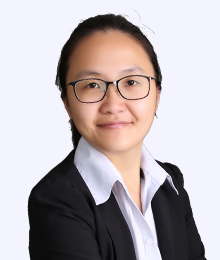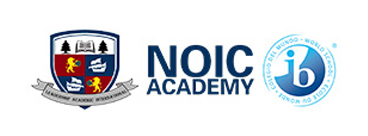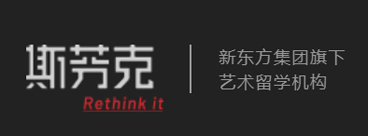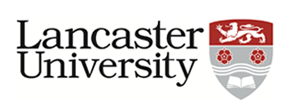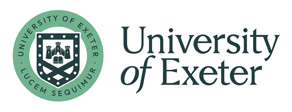臭臭“云游”加拿大 IB课程详解
臭臭“云游”加拿大



IB课程详解
继续详解 臭臭分析不停
神秘IB 一起解密
第三组
Group 3.
Individuals and societies :
https://www.ibo.org/programmes/diploma-programme/curriculum/individuals-and-societies/
Students are required to choose one subject from each of the six academic areas, including one from Individuals and societies.
They can choose a second subject from each academic area except the arts.
Subjects available:
1- business management
2- economics
3- geography
4- global politics
5- history
6- information technology in a global society
7- philosophy
8- psychology
9- social and cultural anthropology
10- world religions (SL only).
Studying any one of these subjects provides for the development of a critical appreciation of:
1- human experience and behaviour
2- the varieties of physical, economic and social environments that people inhabit
3- the history of social and cultural institutions.
In addition, each subject is designed to foster in students the capacity to identify, to analyse critically and to evaluate theories, concepts and arguments relating to the nature and activities of individuals and societies.
The following courses are available online:
1- Business Management SL
2- Business Management HL
3- Economics HL
4- Economics SL
5- Information Technology in a Global Society SL
6- Information Technology in a Global Society HL
7- Philosophy SL
8- Psychology SL
9- Psychology HL
个人和社团:
https://www.ibo.org/programmes/diploma-programme/curriculum/individuals-and-societies/
要求学生从六个学术领域中的每个领域中选择一门学科,包括从个人和社会中选择一个学科。
他们可以从艺术以外的每个学术领域选择第二门学科。
可用科目:
1-业务管理
2-经济学
3地理
4-全球政治
5-历史
6-全球社会中的信息技术
7-哲学
8-心理学
9-社会文化人类学
10-世界宗教(仅SL)。
研究这些主题中的任何一个都有助于对以下方面的批判性评价:
1-人类的经验和行为
2-人们居住的各种自然,经济和社会环境
3-社会文化机构的历史。
此外,每门科目的目的是培养学生识别,批判性分析以及评估与个人和社会的性质和活动有关的理论,概念和论据的能力。
可在线获得以下课程:
1-业务管理SL
2-业务管理HL
3-经济学HL
4-经济学SL
5-全球社会的信息技术SL
6-全球社会中的信息技术HL
7-哲学SL
8-心理学SL
9-心理学HL
第三组包含的考点内容非常多 单独我们详细分析下~~
Business management :
https://www.ibo.org/programmes/diploma-programme/curriculum/individuals-and-societies/business-and-management/
The business management course is designed to develop students’ knowledge and understanding of business management theories, as well as their ability to apply a range of tools and techniques.
Students learn to analyse, discuss and evaluate business activities at local, national and international levels. The course covers a range of organizations from all sectors, as well as the socio-cultural and economic contexts in which those organizations operate.
The course covers the key characteristics of business organization and environment and the business functions of human resource management, finance and accounts, marketing and operations management.
Links between the topics are central to the course.
Through the exploration of six underpinning concepts (change, culture, ethics, globalization, innovation and strategy), the course allows students to develop a holistic understanding of today’s complex and dynamic business environment.
The conceptual learning is firmly anchored in business management theories, tools and techniques and placed in the context of real world examples and case studies.
The course encourages the appreciation of ethical concerns at both a local and global level.
It aims to develop relevant and transferable skills, including the ability to: think critically; make ethically sound and well-informed decisions; appreciate the pace, nature and significance of change; think strategically; and undertake long term planning, analysis and evaluation. The course also develops subject-specific skills, such as financial analysis.
The aims of the business management course at HL and SL are to:
1- encourage a holistic view of the world of business
2- empower students to think critically and strategically about individual and organizational behaviour
3- promote the importance of exploring business issues from different cultural perspectives
4- enable the student to appreciate the nature and significance of change in a local, regional and global context
5- promote awareness of the importance of environmental, social and ethical factors in the actions of individuals and organizations
6- develop an understanding of the importance of innovation in a business environment.
商业管理 :
https://www.ibo.org/programmes/diploma-programme/curriculum/individuals-and-societies/business-and-management/
商业管理课程旨在培养学生对商业管理理论的知识和理解,以及他们运用各种工具和技术的能力。
学生学习在地方,国家和国际各级分析,讨论和评估商业活动。该课程涵盖了来自各个部门的一系列组织,以及这些组织开展业务的社会文化和经济背景。
该课程涵盖业务组织和环境的关键特征以及人力资源管理,财务和会计,市场营销和运营管理的业务功能。
主题之间的链接是课程的中心。
通过探索六个基本概念(变化,文化,道德,全球化,创新和战略),该课程使学生能够对当今复杂而动态的商业环境有一个整体的了解。
概念学习牢固地扎根于业务管理理论,工具和技术中,并置于现实世界中的实例和案例研究的上下文中。
该课程鼓励在本地和全球范围内对道德问题的理解。
它旨在发展相关和可转移的技能,包括以下能力:批判性思考;在道德上做出合理且明智的决定;欣赏变化的步伐,性质和意义;战略性思考并进行长期规划,分析和评估。该课程还开发特定学科的技能,例如财务分析。
HL和SL的商业管理课程的目的是:
1-鼓励对商业世界有整体看法
2-赋予学生批判性和战略性思考个人和组织行为的能力
3-提升从不同文化角度探讨业务问题的重要性
4-使学生能够了解本地,区域和全球环境中变化的性质和重要性
5-提高对个人和组织行动中环境,社会和道德因素重要性的认识
6-对业务环境中创新重要性的理解。
Syllabus outline
Unit 1: Business organization and environment
1.1 Introduction to business management
1.2 Types of organizations
1.3 Organizational objectives
1.4 Stakeholders
1.5 External environment
1.6 Growth and evolution
1.7 Organizational planning tools (HL only)
Key features of the assessment model :
External assessment for HL and SL students consists of two written examination papers. Paper one is based on a pre-seen case study issued in advance, and paper two consists of structured questions based on stimulus material and an extended response question that assesses students’ understanding of the key concepts of the course.
Internal assessment for HL students is a research project and for SL students a written commentary. In both tasks, students study real world business organizations. These are internally marked by subject teachers and then externally moderated by IB examiners.
教学大纲
第1单元:业务组织和环境
1.1业务管理概论
1.2组织类型
1.3组织目标
1.4利益相关者
1.5外部环境
1.6成长与演变
1.7组织计划工具(仅适用于HL)
评估模型的主要特点:
高中和高中学生的外部评估包括两份书面考试卷。 论文一基于事先发布的事前案例研究,论文二由基于刺激材料的结构化问题和评估学生对课程关键概念的理解的扩展回答问题组成。
高中生的内部评估是一个研究项目,而高中生的内部评估是书面评论。 在这两个任务中,学生都学习现实世界中的商业组织。 这些由学科老师内部标记,然后由IB审查员外部审核。
Unit 2: Human resource management
2.1 Functions and evolution of human resource management
2.2 Organizational structure
2.3 Leadership and management
2.4 Motivation
2.5 Organizational (corporate) culture (HL only)
2.6 Industrial/employee relations (HL only)
第二单元:人力资源管理
2.1人力资源管理的功能和演变
2.2组织结构
2.3领导与管理
2.4动机
2.5组织(企业)文化(仅适用于HL)
2.6劳资关系(仅适用于HL)
Unit 3: Finance and accounts
3.1 Sources of finance
3.2 Costs and revenues
3.3 Break-even analysis
3.4 Final accounts (some HL only)
3.5 Profitability and liquidity ratio analysis
3.6 Efficiency ratio analysis (HL only)
3.7 Cash flow
3.8 Investment appraisal (some HL only)
3.9 Budgets (HL only)
Unit 4: Marketing
4.1 The role of marketing
4.2 Marketing planning (including introduction to the four Ps)
4.3 Sales forecasting
4.4 Market research
4.5 The four Ps (product, price, promotion, place)
4.6 The extended marketing mix of seven Ps (HL only)
4.7 International marketing (HL only)
4.8 E-commerce
单元3:财务和帐户
3.1资金来源
3.2成本与收入
3.3收支平衡分析
3.4决算(仅某些HL)
3.5盈利能力和流动性比率分析
3.6效率比分析(仅适用于HL)
3.7现金流量
3.8投资评估(仅适用于部分HL)
3.9预算(仅适用于HL)
单元4:行销
4.1营销的作用
4.2营销计划(包括对四个P的介绍)
4.3销售预测
4.4市场研究
4.5四个P(产品,价格,促销,位置)
4.6七个P的扩展营销组合(仅适用于HL)
4.7国际营销(仅适用于HL)
4.8电子商务
Unit 5: Operations management
5.1 The role of operations management
5.2 Production methods
5.3 Lean production and quality management (HL only)
5.4 Location
5.5 Production planning (HL only)
5.6 Research and development (HL only)
5.7 Crisis management and contingency planning (HL only)
单元5:运营管理
5.1运营管理的作用
5.2生产方法
5.3精益生产和质量管理(仅适用于HL)
5.4位置
5.5生产计划(仅适用于HL)
5.6研究与开发(仅适用于HL)
5.7危机管理和应急计划(仅适用于HL)
Economics :
https://www.ibo.org/programmes/diploma-programme/curriculum/individuals-and-societies/economics/
The IB Diploma Programme Economics course forms part of group 3 - individuals and societies.
Economics is an exciting, dynamic subject that allows students to develop an understanding of the complexities and interdependence of economic activities in a rapidly changing world.
At the heart of economic theory is the problem of scarcity. While the world’s population has unlimited needs and wants, there are limited resources to satisfy these needs and wants. As a result of this scarcity, choices have to be made.
The DP economics course, at both SL and HL, uses economic theories to examine the ways in which these choices are made:
1- at the level of producers and consumers in individual markets (microeconomics)
2- at the level of the government and the national economy (macroeconomics)
3- at an international level where countries are becoming increasingly interdependent through international trade and the movement of labour and capital (the global economy).
The choices made by economic agents (consumers, producers and governments) generate positive and negative outcomes and these outcomes affect the relative well-being of individuals and societies.
As a social science, economics examines these choices using models and theories.
The DP economics course allows students to explore these models and theories, and apply them, using empirical data, through the examination of six real-world issues.
As economic growth and increased efficiency become prominent goals,
---two other important global economic issues related to these goals are; the ways in which economic activity impacts the environment,
and the challenges facing the world in terms of fair access to resources, goods and services.
When exploring these significant global issues, sustainability
and equity become key concepts for DP economic students to understand.
In all areas of economic activity,
the economic agents can be divided up into the private sector (consumers and producers)
and the public sector (governments).
To different extents and with different outcomes, the public sector in any economy assumes some responsibility for monitoring and regulating the behaviour of the private sector. This government intervention is a significant concept that appears throughout the course and students are expected to critically evaluate the balance between the market forces of the private sector and intervention by governments.
Given the rapidly changing world, economic activity and its outcomes are constantly in flux. Therefore, students are encouraged, throughout the course, to research current real-world issues. Through their own inquiry, it is expected that students will be able to appreciate both the values and limitations of economic models in explaining real-world economic behaviour and outcomes.
By focusing on the six real-world issues through the nine key concepts
(scarcity, choice, efficiency, equity, economic well-being, sustainability, change, interdependence and intervention),
students of the DP economics course will develop the knowledge, skills, values and attitudes that will encourage them to act responsibly as global citizens.
For the internal assessment, both standard level and higher level candidates are required to produce a portfolio of three commentaries based on published extracts from the news media using the key concepts as a lens.
In addition, for the external assessment, there are two examinations for standard level students and three examinations at higher level.
经济学:
https://www.ibo.org/programmes/diploma-programme/curriculum/individuals-and-societies/economics/
IB文凭课程经济学课程属于个人和社会团体3的一部分。
经济学是一门令人振奋,充满活力的学科,它使学生能够理解瞬息万变的世界中经济活动的复杂性和相互依赖性。
经济理论的核心是稀缺性问题。尽管世界人口有无限的需求和需求,但满足这些需求和需求的资源却有限。由于这种稀缺性,必须做出选择。
SL和HL的DP经济学课程都使用经济学理论来研究做出这些选择的方式:
1-在单个市场中生产者和消费者的水平(微观经济学)
2-在政府和国民经济层面(宏观经济学)
3-在国际上,各国通过国际贸易以及劳动力和资本(全球经济)的流动变得越来越相互依存。
经济主体(消费者,生产者和政府)做出的选择会产生积极和消极的结果,这些结果会影响个人和社会的相对福祉。
作为一门社会科学,经济学使用模型和理论来研究这些选择。
DP经济学课程允许学生探索这些模型和理论,并通过对六个现实问题的研究,利用经验数据将其应用。
随着经济增长和效率提高成为主要目标,
-与这些目标有关的另外两个重要的全球经济问题是;经济活动影响环境的方式,
以及世界在公平获取资源,商品和服务方面面临的挑战。
探索这些重大的全球问题时,可持续性
公平成为DP经济专业学生理解的关键概念。
在经济活动的所有领域,
经济主体可以分为私营部门(消费者和生产者)
和公共部门(政府)。
任何经济体中的公共部门都在不同程度上和以不同的结果承担着监测和规范私营部门行为的责任。政府干预是一个贯穿整个课程的重要概念,预计学生将严格评估私营部门的市场力量与政府干预之间的平衡。
在瞬息万变的世界中,经济活动及其结果不断变化。因此,在整个课程中,鼓励学生研究当前的现实世界问题。通过他们自己的询问,希望学生在解释现实世界的经济行为和结果时能够体会到经济模型的价值和局限性。
通过九个关键概念专注于六个现实问题
(稀缺性,选择,效率,公平,经济福祉,可持续性,变化,相互依存和干预),
DP经济学课程的学生将发展知识,技能,价值观和态度,这将鼓励他们以负责任的态度行事为全球公民。
对于内部评估,要求标准级别和更高级别的候选人都必须使用关键概念作为镜头,根据新闻媒体发布的摘录来制作三条评论的作品集。
此外,对于外部评估,标准水平的学生有两门考试,高层次的考试有三门。
Geography :
https://www.ibo.org/programmes/diploma-programme/curriculum/individuals-and-societies/geography/
The Diploma Programme geography course integrates both physical and human geography, and ensures that students acquire elements of both scientific and socio-economic methodologies.
Geography takes advantage of its position to examine relevant concepts and ideas from a wide variety of disciplines. This helps students develop an appreciation of, and a respect for, alternative approaches, viewpoints and ideas.
The geography course embodies global and international awareness in several distinct ways.
It examines key global issues, such as poverty, sustainability and climate change. It considers examples and detailed case studies at a variety of scales, from local to regional, national and international.
地理:
https://www.ibo.org/programmes/diploma-programme/curriculum/individuals-and-societies/geography/
文凭课程地理课程将自然地理和人文地理融为一体,并确保学生获得科学和社会经济方法论的要素。
地理学利用其位置来研究各种学科的相关概念和思想。 这有助于学生对替代方法,观点和想法的欣赏和尊重。
地理课程以几种不同的方式体现了全球和国际意识。
它研究了关键的全球性问题,例如贫困,可持续性和气候变化。 它考虑了从地方到地区,国家和国际的各种规模的实例和详细的案例研究。
Global politics :
https://www.ibo.org/programmes/diploma-programme/curriculum/individuals-and-societies/global-politics/
The global politics course explores fundamental political concepts such as power, equality, sustainability, and peace in a range of contexts and at a variety of levels.
It allows students to develop an understanding of the local, national, international and global dimensions of political activity, as well as allowing them the opportunity to explore political issues affecting their own lives.
Global politics draws on a variety of disciplines in the social sciences and humanities. It helps students to understand abstract political concepts by grounding them in real world examples and case studies, and also invites comparison between such examples and case studies to ensure a transnational perspective.
Developing international mindedness and an awareness of multiple perspectives is at the heart of this course. It encourages dialogue and debate, nurturing the capacity to interpret competing and contestable claims.
All standard level and higher-level students complete a common core under the central unifying theme of "people, power and politics".
This consists of four core units:
1- Power, sovereignty and international relations
2- Human rights
3- Development
4- Peace and conflict.
All standard level and higher-level students also undertake an engagement activity through which they study a political issue of interest experientially.
Students complement their experiential learning with more theoretical perspectives from research and submit a written report summarising their investigation.
Higher-level students also examine two contemporary global political challenges, through a case studies approach.
全球政治:
https://www.ibo.org/programmes/diploma-programme/curriculum/individuals-and-societies/global-politics/
全球政治课程在各种背景下和不同层次上探索诸如权力,平等,可持续性与和平之类的基本政治概念。
它使学生能够了解政治活动的地方,国家,国际和全球范围,并让他们有机会探讨影响自己生活的政治问题。
全球政治借鉴了社会科学和人文科学的各种学科。它通过使学生以现实世界中的实例和案例研究为基础来帮助他们理解抽象的政治概念,并鼓励在此类实例和案例研究之间进行比较以确保具有跨国视角。
培养国际意识和多角度意识是本课程的核心。它鼓励对话和辩论,提高了解释相互竞争和可争辩的主张的能力。
所有标准水平和更高水平的学生都以“人,权力和政治”为中心统一主题,完成了一个共同的核心。
它由四个核心单元组成:
1-权力,主权与国际关系
2-人权
3-发展
4-和平与冲突。
所有标准水平和更高水平的学生还进行参与活动,通过他们进行体验性研究的政治问题。
学生们将从研究中获得更多理论视角来补充他们的体验式学习,并提交一份书面报告,总结他们的调查。
高年级学生还通过案例研究的方法考察了两个当代全球政治挑战。
History :
https://www.ibo.org/programmes/diploma-programme/curriculum/individuals-and-societies/history/
History is a dynamic, contested, evidence-based discipline that involves an exciting engagement with the past.
History is an exploratory subject that fosters a sense of inquiry. It is also an interpretive discipline, allowing opportunity for engagement with multiple perspectives and opinions. Studying history develops an understanding of the past, which leads to a deeper understanding of the nature of humans and of the world today.
The Diploma Programme (DP) history course is a world history course based on a comparative, multi-perspective approach to history and focused around key historical concepts such as change, causation and significance.
It involves the study of a variety of types of history, including political, economic, social and cultural, encouraging students to think historically and to develop historical skills. In this way, the course involves a challenging and demanding critical exploration of the past.
The DP history course requires students to study and compare examples from different regions of the world, helping to foster international mindedness. Teachers have a great deal of freedom to choose relevant examples to explore with their students, helping to ensure that the course meets their students’ needs and interests regardless of their location or context.
History is available at both Standard Level (SL) and Higher Level (HL).
历史:
https://www.ibo.org/programmes/diploma-programme/curriculum/individuals-and-societies/history/
历史是一门充满活力的,有争议的,基于证据的学科,涉及与过去的激动人心的交往。
历史是一个探索性的主题,可以激发人们的探究意识。它也是一门解释性学科,它提供了参与多种观点和观点的机会。学习历史可以了解过去,从而可以更深刻地了解人类和当今世界的本质。
文凭课程(DP)历史课程是一门世界历史课程,它基于对历史的比较性,多视角方法,并且侧重于重要的历史概念,例如变化,因果关系和重要性。
它涉及对各种历史类型的研究,包括政治,经济,社会和文化,以鼓励学生进行历史思考和发展历史技能。通过这种方式,本课程涉及对过去的挑战性和苛刻的批判性探索。
DP历史课程要求学生学习和比较来自世界不同地区的示例,以帮助培养国际意识。老师拥有很大的自由度,可以选择相关示例与学生一起探索,从而帮助确保课程满足学生的需求和兴趣,而无论他们身在何处或所处环境如何。
历史记录在标准级别(SL)和更高级别(HL)均可用。
Information technology in a global society :
https://www.ibo.org/programmes/diploma-programme/curriculum/individuals-and-societies/information-technology-in-a-global-society/
The ITGS framework is modelled on a ‘triangle’.
It uses an integrated approach, encouraging students to make informed judgements and decisions about the role of information and communication technologies in contemporary society.
The ITGS triangle
Composed of three strands, with interrelating topics within each:
Key features of the curriculum and assessment models :
1- Two courses are offered, Standard Level (SL) that requires 150 hours of teaching time over two years, and Higher Level (HL) that requires 240 hours.
2- The ITGS course is based on three interconnected strands; Social and ethical significance, Application to specified scenarios, IT systems.
3- The ITGS triangle lies at the heart of the pedagogy. With an understanding of the information technologies, students must be able to evaluate social/ethical issues in specified scenarios.
4- ITGS requires students to have strong research and higher order thinking skills.
5- Teachers may choose any relevant contemporary article to illustrate scenarios. A vibrant wiki has been developed to help teachers share resources.
6- Collaboration between schools, teachers and students is encouraged. Teachers need to keep abreast of emerging online tools, applications and hardware.
7- A component (HL only) is linked to the annually issued case study. This requires students to investigate a new topic related to the subject in greater depth.
8- ITGS requires students to develop a product that would be suitable for a client. The aim of this assessment is to support and prepare students for the workplace.
全球社会中的信息技术:
https://www.ibo.org/programmes/diploma-programme/curriculum/individuals-and-societies/information-technology-in-a-global-society/
ITGS框架以“三角形”为模型。
它采用一种综合方法,鼓励学生就信息和通信技术在当代社会中的作用做出明智的判断和决定。
ITGS三角
由三部分组成,各部分中的主题相互关联:
见图
课程和评估模型的主要特点:
1-提供两门课程,标准级别(SL)要求在两年内教授150个小时的时间,而高级级别(HL)则需要240小时。
2- ITGS课程基于三个相互关联的环节;社会和伦理意义,对特定方案的应用,IT系统。
3- ITGS三角位于教学法的中心。在了解了信息技术之后,学生必须能够在特定的情况下评估社会/道德问题。
4- ITGS要求学生具有较强的研究能力和较高阶的思维能力。
5-教师可以选择任何相关的当代文章来说明场景。已经开发了一个充满活力的Wiki,以帮助教师共享资源。
6-鼓励学校,教师和学生之间的合作。教师需要及时了解新兴的在线工具,应用程序和硬件。
7-组件(仅适用于HL)与每年发布的案例研究相关。这要求学生更深入地研究与该主题相关的新主题。
8- ITGS要求学生开发适合客户的产品。评估的目的是支持和准备学生进入工作场所。
Psychology :
https://www.ibo.org/programmes/diploma-programme/curriculum/individuals-and-societies/psychology/
The IB Diploma Programme psychology course is the systematic study of behaviour and mental processes.
Since the psychology course examines the interaction of biological, cognitive and sociocultural influences on human behaviour, individuals and societies.
Students undertaking the course can expect to develop an understanding of how psychological knowledge is generated, developed and applied.
This will allow them to have a greater understanding of themselves and appreciate the diversity of human behaviour.
The holistic approach reflected in the curriculum, which sees biological, cognitive and sociocultural analysis being taught in an integrated way ensures that students are able to develop an understanding of what all humans share, as well as the immense diversity of influences on human behaviour and mental processes.
The ethical concerns raised by the methodology and application of psychological research are also key considerations of the IB psychology course.
心理学:
https://www.ibo.org/programmes/diploma-programme/curriculum/individuals-and-societies/psychology/
IB文凭课程心理学课程是对行为和心理过程的系统研究。
由于心理学课程研究了生物学,认知和社会文化影响对人类行为,个人和社会的相互作用。
修读该课程的学生可以期望对如何产生,发展和运用心理知识有所了解。
这将使他们对自己有更多的了解,并欣赏人类行为的多样性。
课程中所反映的整体方法,即以综合的方式教授生物,认知和社会文化分析,确保学生能够对所有人共享的知识有深刻的理解,以及对人类行为和心理影响的巨大多样性流程。
心理学研究的方法和应用引起的伦理关注也是IB心理学课程的主要考虑因素。
Social and cultural anthropology :
https://www.ibo.org/programmes/diploma-programme/curriculum/individuals-and-societies/social-and-cultural-anthropology/
The IB Diploma Programme's social and cultural anthropology course offers an opportunity for students to explore and understand humankind in all its diversity through the comparative study of culture and human societies.
In studying this course students will come to appreciate how anthropology as a discipline contributes to an understanding of contemporary issues, such as war and conflict, the environment, poverty, injustice, inequality and human and cultural rights. The study of social and cultural anthropology offers critical insight into the continuities as well as dynamics of social change and the development of societies, and challenges cultural assumptions.
Students undertaking this course will have the opportunity to become acquainted with anthropological perspectives and ways of thinking, and to develop critical, reflexive knowledge. Perfectly placed in group 3, individuals and societies, social and cultural anthropology contributes to a distinctive approach to intercultural awareness and understanding. It allows students to develop the capacity to recognize preconceptions and assumptions of their own social and cultural environments through an exploration of both the familiar and unfamiliar worlds of other people.
社会文化人类学:
https://www.ibo.org/programmes/diploma-programme/curriculum/individuals-and-societies/social-and-cultural-anthropology/
IB文凭课程的社会和文化人类学课程为学生提供了一个机会,可以通过对文化和人类社会的比较研究来探索和理解人类在其各种多样性中的地位。
通过学习本课程,学生将认识到人类学作为一门学科如何有助于理解当代问题,例如战争和冲突,环境,贫困,不公正,不平等以及人权和文化权利。对社会和文化人类学的研究提供了对社会变化和社会发展的连续性,动态性的批判性见解,并挑战了文化假设。
参加本课程的学生将有机会熟悉人类学的观点和思维方式,并发展批判性的,反身的知识。社会和文化人类学完美地融入了个人和社会的第3组,为跨文化意识和理解提供了独特的方法。通过探索他人熟悉和不熟悉的世界,它使学生能够发展出认识自己社会和文化环境的先入之见和假设的能力。
World religions :
https://www.ibo.org/programmes/diploma-programme/curriculum/individuals-and-societies/world-religions/
The Diploma Programme SL world religions course is a new course that was launched in September 2011.
It is a systematic, analytical yet empathetic study of the variety of beliefs and practices encountered in nine main religions of the world.
The course seeks to promote an awareness of religious issues in the contemporary world by requiring the study of a diverse range of religions. In the context of the mission statement of the IB it is most appropriate to study a number of living world religions in a scholarly, open-minded and objective way.
The religions should be studied in such a way that students acquire a sense of what it is like to belong to a particular religion and how that influences the way in which the followers of that religion understand the world, act in it, and relate and respond to others.
The course consists of an introductory unit, exploring five of the nine living world religions that form the basis of the syllabus.
This is complemented by an in-depth study of two religions chosen from six world religions.
This part of the syllabus is guided by themes, key concepts and key questions. The final component is the investigative study, which provides opportunities for individual research of an aspect of the religious experience, practice or belief of a group and/or individual adherents.
In the study of world religions, the experiential dimension to learning is of great importance, and it is hoped that the course will be a catalyst for visits to and from members of different faith communities.
Where this is not possible, imaginative teaching, combined with the use of a range of resources, should enable the students to come to know what it means to be a follower of a particular religion.
World religions aims :
The aims of the Diploma Programme world religions course are to enable students to:
1-promote an inquiring, analytical and empathetic approach to the study of religion
2- develop an informed understanding of the diversity of world religions
3- foster a respectful awareness of the significance of the beliefs and practices for the faith member
4- develop an understanding of how religion affects people’s lives
5- encourage a global appreciation of the issues surrounding religious and spiritual beliefs, controversies and movements in the world today
6- promote responsible and informed international citizenship.
The syllabus specification focuses on core beliefs, but these should not be seen to exclude or restrict the diversity of beliefs and practices that are present within religions.
Chart of world religions :
Students should be introduced to a range of world religions reflecting different traditions, beliefs and practices.
Five religions must be selected, at least one from each of the three columns (approximate teaching time is 50 hours, that is, 10 hours for each religion).
World religions and the international dimension :
The Diploma Programme world religions course seeks to promote respect for the diversity of religious beliefs, both locally and globally, with the aim of enhancing international and inter-religious understanding.
The course provides a very different perspective in this area. Students should be encouraged to look at contemporary national and international issues regarding religion and how these may impact on ethical and legal issues.
World religions and prior learning :
No particular background in terms of specific subjects studied for national or international qualifications is expected or required, and no prior knowledge of world religions is necessary for students to undertake this course of study.
世界宗教:
https://www.ibo.org/programmes/diploma-programme/curriculum/individuals-and-societies/world-religions/
文凭课程SL世界宗教课程是一门新课程,于2011年9月启动。
这是对世界上九种主要宗教所遇到的各种信仰和习俗的系统,分析而又富有同理心的研究。
该课程旨在通过要求学习各种宗教来提高当代世界对宗教问题的认识。在国际文凭组织的使命声明的背景下,最合适的是以学术,开放和客观的方式研究许多世界上的宗教。
宗教的研究方式应使学生了解属于特定宗教的感觉,以及其如何影响该宗教的信徒了解世界,在世界上行动以及与之互动和回应的方式。给别人。
该课程包括一个入门单元,探讨构成该课程提纲基础的九种世界活宗教中的五种。
这是对从六种世界宗教中选出的两种宗教进行深入研究的补充。
教学大纲的这一部分以主题,关键概念和关键问题为指导。最后一部分是调查研究,它为团体和/或个人信徒的宗教经验,实践或信仰方面的个人研究提供了机会。
在世界宗教的研究中,学习的体验层面非常重要,希望该课程能成为来访不同宗教团体成员的催化剂。
在不可能做到这一点的情况下,富于想象力的教学加上各种资源的使用,应使学生能够了解成为特定宗教的信徒意味着什么。
世界宗教的目标是:
文凭课程世界宗教课程的目的是使学生能够:
1-促进探究,分析和移情的宗教研究方法
2-对世界宗教的多样性有深入的了解
3-培养对信仰成员的信仰和实践意义的尊重
4-加深对宗教如何影响人们生活的理解
5-鼓励全球了解当今世界围绕宗教和精神信仰,争议和运动的问题
6-提倡负责任和知情的国际公民。
教学大纲说明的重点是核心信念,但不应将其视为排除或限制宗教中存在的信念和实践的多样性。
世界宗教图:
应向学生介绍一系列反映不同传统,信仰和习俗的世界宗教。
必须选择五种宗教,从三列中至少选择一种(大约教学时间为50小时,即每种宗教10小时)。
世界宗教与国际层面:
文凭课程世界宗教课程旨在促进对本地和全球宗教信仰多样性的尊重,以期增进国际和宗教间的了解。
本课程在这方面提供了截然不同的观点。应鼓励学生研究有关宗教的当代国家和国际问题,以及这些问题如何影响道德和法律问题。
世界宗教与先验知识:
不需要或不需要就获得国家或国际资格的特定学科而言具有特定的背景,并且学生无需具备世界宗教的先验知识即可进行此课程的学习。

